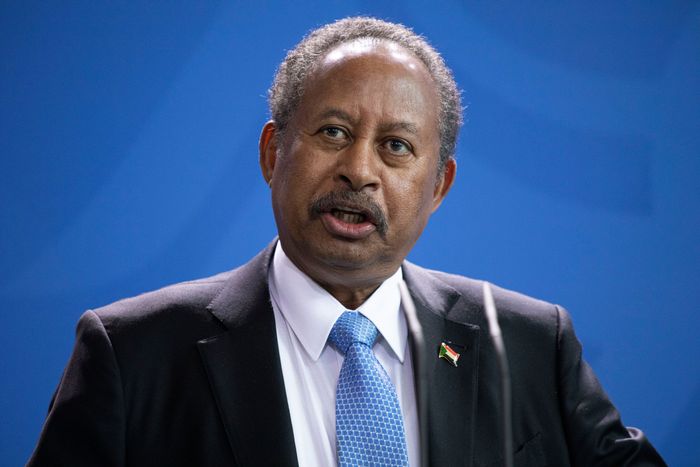Sudan’s Prime Minister Abdalla Hamdok resigned late Sunday, abandoning his weekslong efforts to form a new technocratic government to pull the country out of its economic crisis and a worsening political standoff.
Mr. Hamdok was head of Sudan’s fragile transitional government following the ouster of long-serving leader Omar al-Bashir in 2019 before being toppled and detained in an October coup. Following a deal with military leader General Abdel Fattah al-Burhan, Mr. Hamdok was reinstated in November but protest leaders rejected the agreement and have been demanding a full restoration of civilian rule, plunging the country into weeks of protests as inflation soared and food shortages spread.
“Despite all that was done to bring about the desired and necessary consensus, this did not happen,” he said. “I tried as far as I was able.”
Mr. Hamdok, a former United Nations economist, cited political fragmentation as well as conflicts between civilians and the military over power sharing as the reasons for his resignation. It marked the latest disruption to the strategically-located nation—it sits at a crossroads between sub-Saharan Africa and the Middle East—as it attempts to transition to democracy following the end of Mr. Bashir’s three-decade reign.
It wasn’t clear whether Mr. Hamdok’s resignation will end the standoff with protest leaders, who have led weeks of mass demonstrations demanding the end of military rule. More than 50 people have been killed in clashes since they began.
There was no immediate reaction from Sudan’s military leaders. Gen. Burhan has previously defended the October coup saying the military acted to prevent the country from plunging into civil war.

Sudan’s Prime Minister Abdalla Hamdok resigned late Sunday.
Photo: omer messinger/Shutterstock
The U.S. and other Western governments have intensified pressure on Sudan’s military in recent weeks to speed up the transition to democracy. Washington—which suspended some $700 million in aid to the country following the coup in October—Monday urged Sudanese leaders to end violence against protesters and ensure continued civilian rule, following Mr. Hamdok’s resignation.
“Sudan’s next prime minister and cabinet should be appointed in line with the constitutional declaration to meet the people’s goals of freedom, peace and justice,” the U.S. State Department’s Bureau of African Affairs said.
Under the November deal with the military, Mr. Hamdok would form a technocratic government to lead the transition to civilian leadership, with elections scheduled for July 2023. But protesters, angered by the military’s tight grip on power, continued to take to the streets, accusing Mr. Hamdok of treachery in a standoff that has unsettled the country.
More on Sudan
Mr. Hamdok’s resignation came hours after Sudan’s security forces fired tear gas and rubber bullets to disperse crowds of protesters. At least three people were killed in Sunday’s clashes, according to the medical group the Central Committee of Sudanese Doctors.
Under Mr. Hamdok, the U.S. ended decades of economic sanctions against Sudan and removed Khartoum from the list of state sponsors of terrorism. But the country has continued to grapple with huge economic challenges, including shortages of basic commodities including fuel and wheat. Consumer-price inflation has soared to over 400% in recent months and the U.N. has warned that at least a third of Sudan’s 48 million people will need humanitarian aid in 2022, the highest number in a decade.
The economic crisis has resulted in rationing and a disruption in supplies ranging from medicines to bread. Long lines of people form daily outside bakeries and gasoline stations across Khartoum, further fueling discontent.
Some observers say that Western donors aren’t doing enough to pressure Sudan’s powerful military to foster a full transition to democratic rule.
“The longer the United States and European Union wait to create consequences for the actions of the military rulers, the more the regime is consolidating its economic and political power, to the great detriment of Sudan’s population,” said John Prendergast, head of Washington-based advocacy group The Sentry.
Write to Nicholas Bariyo at [email protected]
Copyright ©2022 Dow Jones & Company, Inc. All Rights Reserved. 87990cbe856818d5eddac44c7b1cdeb8
Appeared in the January 4, 2022, print edition as ‘Washington Urges End to Sudan Strife.’








